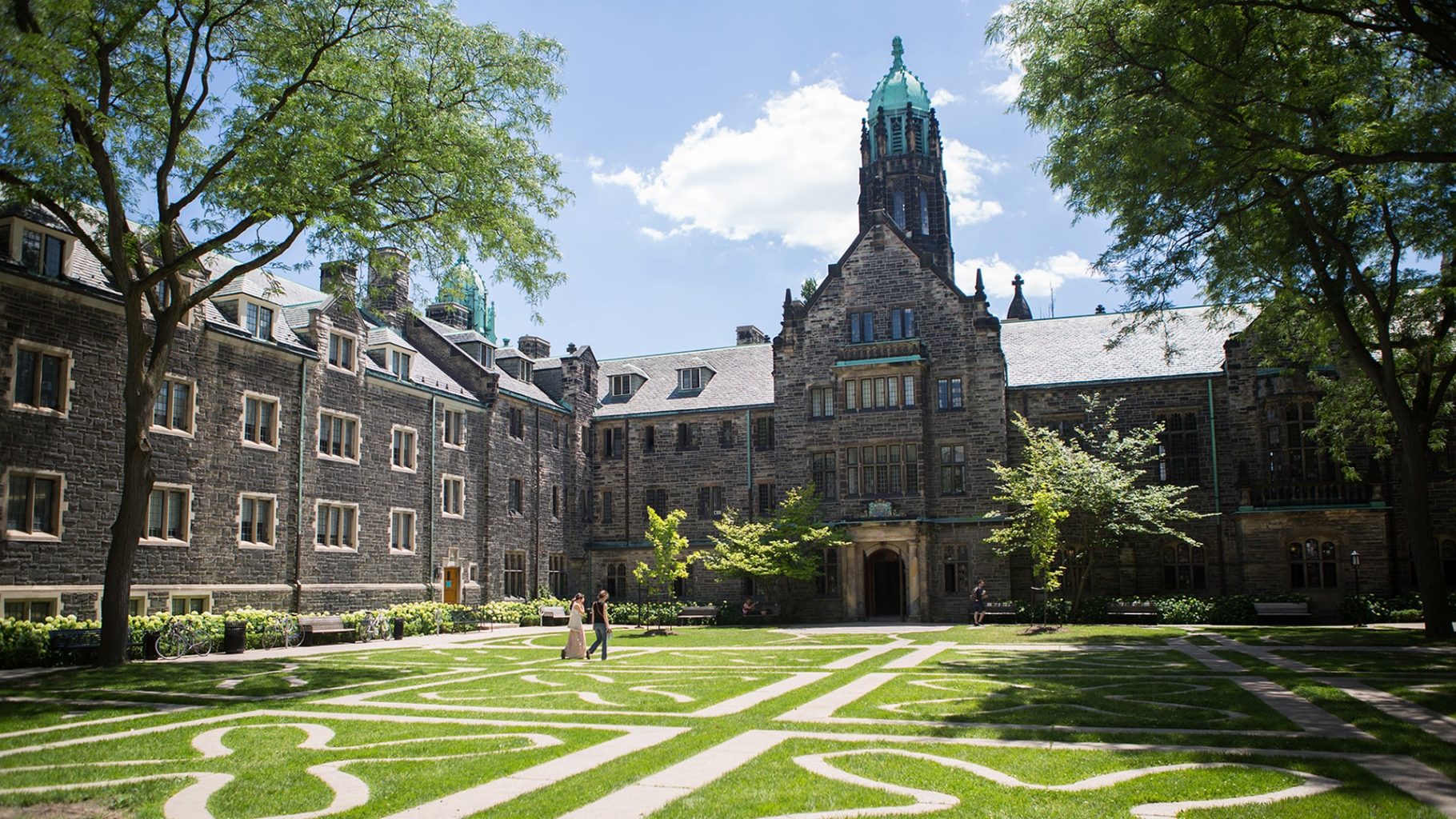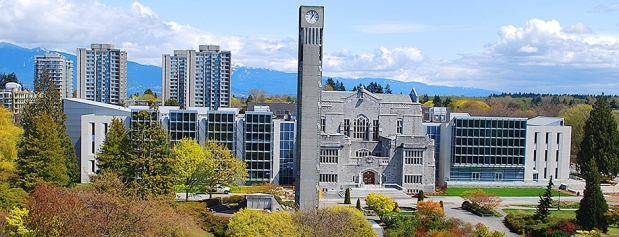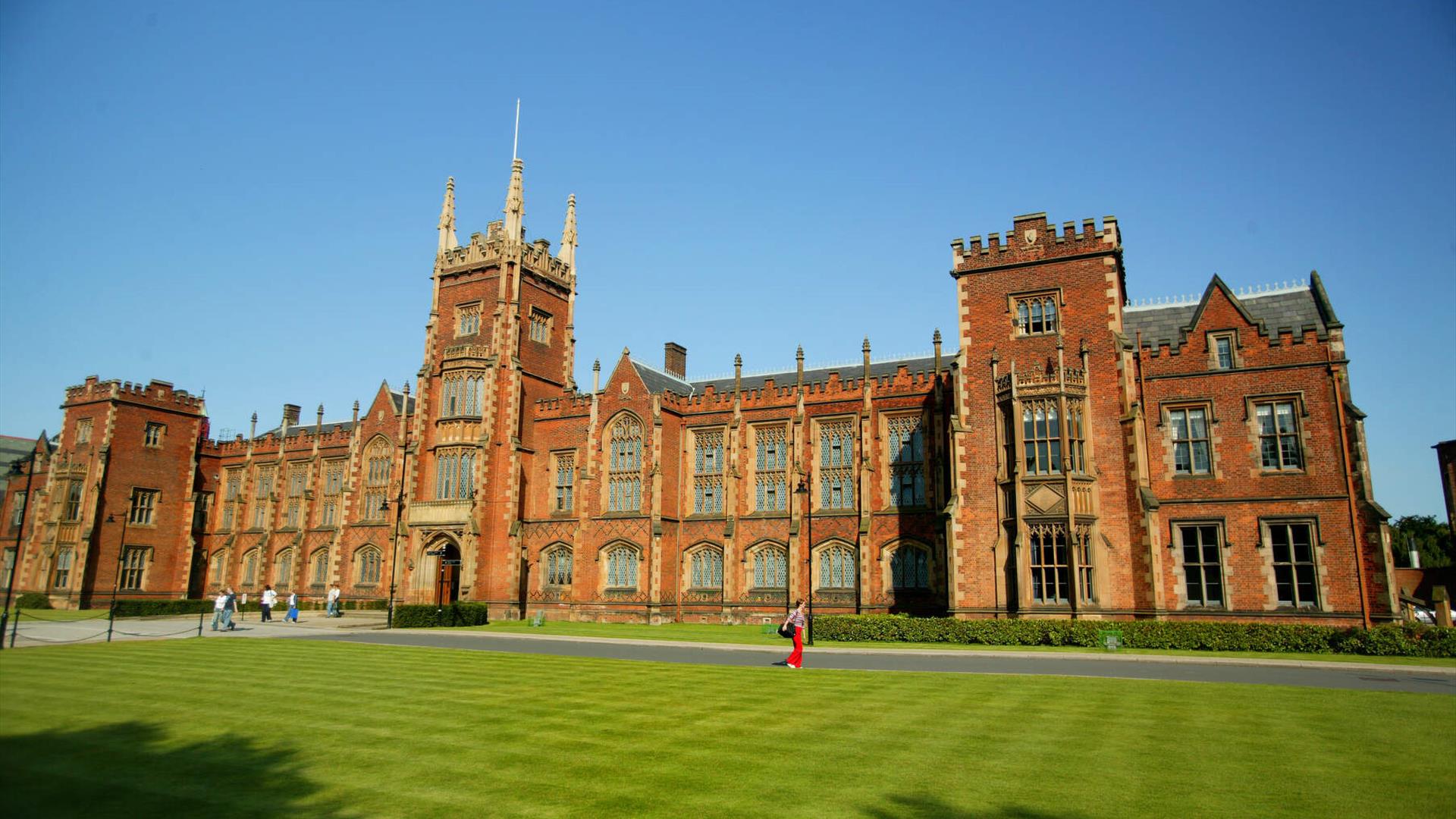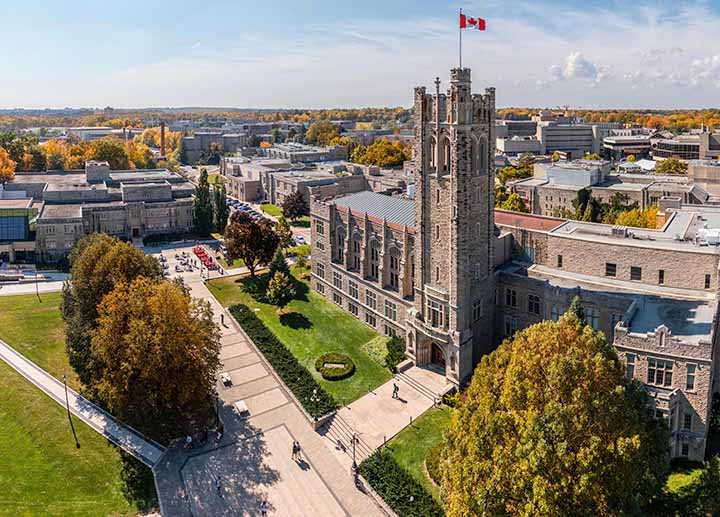11 December 2024
10 minutes read
Engineering Universities in Canada: Unveiling the Best Engineering Program and Opportunities for Aspiring Engineers

Key Takeaways:
- Canada offers top-ranked engineering programs globally.
- Canadian universities are fully accredited by relevant boards.
- Scholarships are widely available for aspiring engineers.
- Engineering degrees in Canada open doors to global careers.
- Canadian engineering education emphasizes practical experience.
Over the years, engineering universities have formed the landscape in Canada, providing students with a window to high-class education and innovation. Institutions such as the University of Toronto, the University of British Columbia, and McGill University have been at the forefront; offering accredited programs that guarantee not only an overwhelming degree in engineering but also a vibrant road to career achievement. Electrical or environmental engineering, the Canadian educational expertise is embodied in the design of professionals who are experts on the ground.
FACT
The University of Toronto ranks among the top 20 globally for engineering programs, noted for its research output and industry ties.
Engineering Universities in Canada
What Are the Top Engineering Universities in Canada?
Canada demonstrates a commitment to education, and the quality of training is especially eloquent where the specialization of engineering is involved. Canadian universities are not just educational institutions but also innovation centers and research centers where students from all over the world come with lofty ambitions. The universities are well-known for how well-equipped they are because the most advanced technologies are made available there.
1.University of Toronto

- Global Rank: Top 20
- Rank in Canada: 1
- Location: Toronto, Ontario
- Courses Offered: Chemical, Civil, Electrical, Mechanical, Industrial Engineering
- Eligibility: High academic performance, strong foundation in Math and Sciences
- IELTS Required: Yes
- GRE Required: Not required for most programs
- Acceptance Rate: ~30%
- Avg. Cost: CAD 50,000 – 60,000 per year
- Hostel Provided: Yes
- Avg. CTA: 4 years
- ROI: High due to excellent global recognition and strong industry links
- Accredited by: CEAB
- Indian Students Allowed: Yes
- Scholarship: Numerous scholarships available
- Student Visa Requirements: Study permit
- Brief Description: The University of Toronto is renowned for its research-intensive programs and strong connections with global industries, making it a top choice for engineering students.
2. University of British Columbia

- Global Rank: Top 35
- Rank in Canada: 2
- Location: Vancouver, British Columbia
- Courses Offered: Civil, Mechanical, Electrical, Chemical, Biomedical Engineering
- Eligibility: Strong performance in relevant subjects, particularly in sciences
- IELTS Required: Yes
- GRE Required: No
- Acceptance Rate: ~50%
- Avg. Cost: CAD 38,000 – 50,000 per year
- Hostel Provided: Yes
- Avg. CTA: 4 years
- ROI: Very high, with graduates highly sought in diverse engineering sectors
- Accredited by: CEAB
- Indian Students Allowed: Yes
- Scholarship: Various merit and need-based scholarships
- Student Visa Requirements: Study permit
- Brief Description: UBC stands out for its commitment to sustainability and innovation, with extensive resources and cutting-edge facilities for engineering students.
3. McGill University

- Global Rank: Top 50
- Rank in Canada: 3
- Location: Montreal, Quebec
- Courses Offered: Mechanical, Chemical, Civil, Electrical, Mining Engineering
- Eligibility: Excellent academic records, particularly in Math and Science
- IELTS Required: Yes
- GRE Required: Not required
- Acceptance Rate: ~45%
- Avg. Cost: CAD 25,000 – 40,000 per year
- Hostel Provided: Yes
- Avg. CTA: 4 years
- ROI: High, with strong post-graduation employment opportunities
- Accredited by: CEAB
- Indian Students Allowed: Yes
- Scholarship: Several scholarships for both domestic and international students
- Student Visa Requirements: Study permit
- Brief Description: McGill is known for its robust engineering programs and global outlook, preparing students for careers in global engineering environments.
4. University of Waterloo

- Global Rank: Top 100
- Rank in Canada: 4
- Location: Waterloo, Ontario
- Courses Offered: Computer Engineering, Mechanical Engineering, Systems Design Engineering
- Eligibility: High academic standing with a strong emphasis on mathematics
- IELTS Required: Yes
- GRE Required: Not usually required
- Acceptance Rate: ~40%
- Avg. Cost: CAD 30,000 – 42,000 per year
- Hostel Provided: Yes
- Avg. CTA: 4-5 years, including co-op terms
- ROI: Excellent, especially with its renowned co-op program
- Accredited by: CEAB
- Indian Students Allowed: Yes
- Scholarship: Numerous financial aid options and co-op earnings
- Student Visa Requirements: Study permit
- Brief Description: Waterloo is acclaimed for its cooperative education program, integrating academic learning with work experience, often regarded as the best of its kind in Canada.
5. University of Alberta

- Global Rank: Top 150
- Rank in Canada: 5
- Location: Edmonton, Alberta
- Courses Offered: Chemical, Petroleum, Civil, Mechanical Engineering
- Eligibility: Strong academic records, particularly in Math and Chemistry
- IELTS Required: Yes
- GRE Required: No
- Acceptance Rate: ~51%
- Avg. Cost: CAD 20,000 – 30,000 per year
- Hostel Provided: Yes
- Avg. CTA: 4 years
- ROI: Good, particularly for those entering the energy sector
- Accredited by: CEAB
- Indian Students Allowed: Yes
- Scholarship: A wide range of scholarships is available
- Student Visa Requirements: Study permit
- Brief Description: The University of Alberta is particularly noted for its strength in chemical and petroleum engineering, closely tied to Alberta’s energy industries.
7. Queen’s University

- Global Rank: Top 250
- Rank in Canada: 7
- Location: Kingston, Ontario
- Courses Offered: Civil, Mechanical, Electrical, Chemical Engineering
- Eligibility: Excellent grades in Math and Science, strong overall academic record
- IELTS Required: Yes
- GRE Required: Not required
- Acceptance Rate: ~40%
- Avg. Cost: CAD 35,000 – 45,000 per year
- Hostel Provided: Yes
- Avg. CTA: 4 years
- ROI: High, recognized for a strong alumni network and industry connections
- Accredited by: CEAB
- Indian Students Allowed: Yes
- Scholarship: Various scholarships for domestic and international students
- Student Visa Requirements: Study permit
- Brief Description: Queen’s University is known for its collaborative environment and cutting-edge research facilities, providing students with a comprehensive engineering education.
8. Western University

- Global Rank: Top 300
- Rank in Canada: 8
- Location: London, Ontario
- Courses Offered: Civil, Mechanical, Software, Environmental Engineering
- Eligibility: High school diploma with advanced courses in Math and Physics
- IELTS Required: Yes
- GRE Required: No
- Acceptance Rate: ~50%
- Avg. Cost: CAD 30,000 – 40,000 per year
- Hostel Provided: Yes
- Avg. CTA: 4 years
- ROI: Good, particularly strong in research and innovation
- Accredited by: CEAB
- Indian Students Allowed: Yes
- Scholarship: Merit-based and entrance scholarships are available
- Student Visa Requirements: Study permit required
- Brief Description: Western University offers a dynamic range of engineering programs, known for their emphasis on both theoretical and practical applications.
9. Ryerson University

- Global Rank: Top 800
- Rank in Canada: 9
- Location: Toronto, Ontario
- Courses Offered: Mechanical, Civil, Electrical, Computer Engineering
- Eligibility: Strong academic background, particularly in Math and Sciences
- IELTS Required: Yes
- GRE Required: Not required
- Acceptance Rate: ~25%
- Avg. Cost: CAD 25,000 – 36,000 per year
- Hostel Provided: Yes
- Avg. CTA: 4 years
- ROI: Good, with a focus on practical skills and industry readiness
- Accredited by: CEAB
- Indian Students Allowed: Yes
- Scholarship: Limited scholarships focusing on academic excellence and leadership
- Student Visa Requirements: Valid study permit
- Brief Description: Ryerson University is strategically located in downtown Toronto, offering robust engineering programs with a strong practical focus, designed to meet the demands of modern industries.
10. Concordia University

- Global Rank: Top 500
- Rank in Canada: 10
- Location: Montreal, Quebec
- Courses Offered: Software Engineering, Mechanical Engineering, Industrial Engineering
- Eligibility: Competitive academic record, especially in relevant subjects
- IELTS Required: Yes
- GRE Required: Not required
- Acceptance Rate: ~50%
- Avg. Cost: CAD 23,000 – 35,000 per year
- Hostel Provided: Yes
- Avg. CTA: 4 years
- ROI: Good, noted for innovative programs and diverse student body
- Accredited by: CEAB
- Indian Students Allowed: Yes
- Scholarship: Scholarships and financial aid options available for international students
- Student Visa Requirements: Study permit
- Brief Description: Concordia University is recognized for its innovative approach to education and a strong emphasis on integrating technology and design in engineering solutions.
The programs are not limited to the mere transfer of technical knowledge and are being actively immersed in real practical tasks. Be it the University of Calgary, which specializes in an understanding of engineering in the energy market or the giant of biomedical engineering – McGill or any other, the graduates receive truly high-quality training and can meet the overall market demand.
Schedule Your Expert Call Now:
Ready to navigate the college application process with ease? Schedule a call with our mentor at your convenience. We’re here to offer personalized solutions and expert guidance.
What Are the Most Popular Engineering Programs in Canada?
Canada is known for its broad spectrum of engineering programs from which every student might select programs that meet their interests and career goals. With this well-known innovation perversion of the education sector around the world, the above-mentioned makes its education system the perfect for studying engineering.
What Are the Top Specializations in Engineering in Canada?
In Canada, there are a variety of opportunities for engineering students and professionals. Below are some of the key areas that are always in demand:
- Electrical Engineering: electrical systems design and development are taught here. The University of Toronto and the University of British Columbia are good in labs.
- Mechanical Engineering: clean from machine design to thermodynamics. A cooperation education sequence is offered by the University of Waterloo.
- Civil Engineering: focus on incendiaries and impact on the environment. Mafia University of Canada and the University of Alberta.
- Software Engineering: With the development of the technology industry, software engineering is now a leading invention area. The University of Calgary and the University of British Columbia combine project work with practical application projects.
What Are the Eligibility Criteria for Studying Engineering in Canada?
Prospective students are to satisfy the following requirements to enroll in engineering programs in Canada:
- Academic Background: A strong baselines in mathematics, and possibly, physics and chemistry
- Language Proficiency: Students for whom English is not the native language would need to pass IELTS or TOEFL; the same applies to the French language, given the presumed prevalence of French-speaking university curriculums in Quebec
- Additional Requirements: Depending on the university and program, applicants may need to submit SAT or ACT scores.
What Is the Application Process for Engineering Programs in Canada?
In general, an application to an engineering program in Canada includes the following steps designed to assess the candidate’s readiness and suitability in the field:
- Submission of Academic Transcripts. An application form must be accompanied by a transcript, which is a copy of the applicant’s academic records from previous years. This document demonstrates a candidate’s academic performance and prerequisite course completion.
- Proof of Language Proficiency: Also, non-English or French speakers must prove their ability to communicate in this language to enable the student to succeed in the English- or French-speaking universities of Canada.
- Letters of Recommendations: These documents allow the institution to learn more about the applicant’s academic and personal qualities from their prior professors, employers, or mentors.
- Statement of Purpose: In this document, the applicant is given the opportunity to make a short essay about their interests and goals in their career, as well as why they chose this particular program and institution.
- Interviews/Portfolios: In some cases, specialized programs such as Software Engineering or Biomedical Engineering may require additional components of applications to evaluate the technical or creative abilities of the candidate.
FACT
Engineering students in Canada benefit from post-graduate work permits, allowing them to gain work experience in Canada after completing their degree.
What Are the Benefits of Pursuing Engineering in Canada?
For many reasons, choosing to study engineering in Canada comes with a wide range of benefits that could accompany a student throughout his or her educational and professional career. These are some of the reasons to make Canada the top choice:
- High-Quality Education: Canada’s engineering programs are known around the world for their high requirements and creative teaching methods. Canadian Engineering Accreditation Board is the establishment in charge of accrediting such programs
- Multicultural Environment: Engineering student will benefit from the inclusivity of the country, which prides itself on being home to people from all cultures and all walks of life.
- Extensive Research Opportunities: Many universities, such as the University of British Columbia and the University of Toronto, are at the forefront of research in areas like sustainable technology and artificial intelligence.
What Are the Job Opportunities for Engineering Graduates in Canada?
Canadian engineering graduates with a degree in their hands have numerous opportunities ahead of them, such as:
- Diverse Industries: Engineers can find roles in sectors such as technology, renewable energy, infrastructure, and automotive, among others.
- Competitive Salaries: Reflective of their high demand and the critical nature of their work, engineering graduates often enjoy lucrative salaries.
- Strong Job Market: Canada’s expanding economy and its emphasis on technological advancements create numerous employment opportunities for engineers.
What Is the Cost of Studying Engineering in Canada?
The financial side of studying engineering in Canada is crucial for most students who are considering studying in this country. Here are the main financial features:
- Tuition Fees: These can vary depending on the institution and specialty of engineering. They are usually higher for international citizens than for Canadian students.
- Scholarship Opportunities: To help manage the cost of tuition, numerous universities offer scholarships and financial aid packages specifically for engineering students.
- Comparison to Other Countries: Canada’s tuition costs are significantly lower than those of the United States and provide attractive costs for students from all over the world.
What Are the Requirements for International Students to Study Engineering in Canada?
International students wishing to study engineering in Canada must navigate a series of requirements to ensure they are prepared for their educational experience:
- Study Permit and Visa: Non-Canadian residents need a study permit, and depending on their country of origin, a visa may also be necessary to enter Canada.
- Academic Requirements: These include a strong background in mathematics and science. Specific prerequisites can vary by program and university.
- Language Proficiency: Proficiency in English (or French, in some cases) is necessary, typically demonstrated through tests like IELTS or TOEFL.
- Financial Proof: International students must prove they can support themselves financially during their studies, covering tuition fees and living expenses.
What Are the Top Universities in Canada for Specific Engineering Programs?
Canada’s engineering education is globally recognized, not only for its comprehensive academic framework but also for its specialized programs that cater to the diverse needs of the industry. Here’s a closer look at which Canadian universities are leading the way in specific engineering disciplines:
Which Universities Offer the Best Electrical Engineering Program in Canada?
Electrical engineering is pivotal to the advancement of technologies in areas like telecommunications, robotics, and power systems. Canadian universities offering top-tier electrical engineering programs include:
- University of Toronto: Known for its rigorous curriculum and state-of-the-art research facilities, it offers students a wealth of opportunities to engage in cutting-edge projects and collaborations with leading tech companies.
- University of British Columbia: Provides a strong focus on both theoretical and applied aspects of electrical engineering, preparing students for significant contributions in both research and industry applications.
Which Universities Offer the Best Mechanical Engineering Program in Canada?
Mechanical engineering students in Canada benefit from comprehensive education programs that cover a range of applications from automotive to aerospace engineering:
- University of Waterloo: This institution stands out for its integration of cooperative education, which melds classroom learning with real-world industry experience, making its graduates highly sought after.
- McGill University: Offers a robust mechanical engineering program with opportunities to engage in innovative research and development projects, from robotics to renewable energy systems.
Which Universities Offer the Best Chemical Engineering Program in Canada?
Chemical engineering is crucial for industries such as pharmaceuticals, petrochemicals, and environmental engineering. The leading universities for chemical engineering in Canada are:
- University of Alberta: Located in the heart of Canada’s energy sector, it offers students unique insights into the oil and gas industry, supplemented by strong academic and practical learning experiences.
- University of Calgary: Provides a comprehensive chemical engineering education with a strong emphasis on applied research and partnerships with industries, enhancing job prospects for graduates.
Conclusion:
Embarking on an engineering degree in Canada is more than just an academic pursuit; it’s a strategic move towards securing a promising future in a competitive field. Canadian universities not only stand out for their academic excellence but also for their ability to integrate students into a thriving job market, complete with opportunities for postgraduate work and specialization in various engineering fields. As global education hubs, these institutions ensure that every graduate is not just ready to face the engineering world but also to innovate and lead within it.
Schedule Your Expert Call Now:
Ready to navigate the college application process with ease? Schedule a call with our mentor at your convenience. We’re here to offer personalized solutions and expert guidance.
FAQs:
What are the top accredited engineering universities in Canada?
Top accredited institutions include the University of Toronto, University of British Columbia, McGill University, University of Alberta, and University of Waterloo, all recognized by the Canadian Engineering Accreditation Board (CEAB).
How do international students apply for engineering programs in Canada?
International students must apply online directly to the university, submitting academic transcripts, proof of English or French proficiency (e.g., IELTS, TOEFL), letters of recommendation, and a personal statement. Specific requirements can vary by program.
What scholarships are available for engineering students in Canada?
Scholarships range from university-specific awards, and merit-based scholarships, to government and private funding options. Examples include the NSERC Postgraduate scholarships, Vanier Canada Graduate Scholarships, and university entrance scholarships.
Which Canadian universities offer specialized engineering programs like biomedical engineering?
Universities such as the University of Toronto, McGill University, the University of British Columbia, and the University of Waterloo offer specialized programs in biomedical engineering.
What are the visa requirements for international students wishing to study engineering in Canada?
International students must obtain a study permit and, depending on their home country, a Temporary Resident Visa (TRV). This requires an acceptance letter from a designated learning institution, proof of financial support, and a clean criminal record.
What are the typical tuition fees for an engineering degree at Canadian universities?
Tuition fees for international students typically range from CAD 20,000 to CAD 60,000 per year, depending on the university and the specific engineering program.
What job opportunities exist in Canada for engineering graduates?
Engineering graduates can find opportunities in sectors such as technology, renewable energies, construction, automotive, and government services. Regions like Ontario, British Columbia, and Alberta, known for their technological and industrial hubs, offer numerous prospects.
How do Canadian engineering degrees compare globally in university rankings?
Canadian engineering degrees are highly respected globally, with several universities consistently ranking in the top 100 of major global rankings like QS World University Rankings and Times Higher Education for their engineering and technology programs.

You can study at top universities worldwide!
Get expert tips and tricks to get into top universities with a free expert session.
Book Your Free 30-Minute Session Now! Book a call now




























